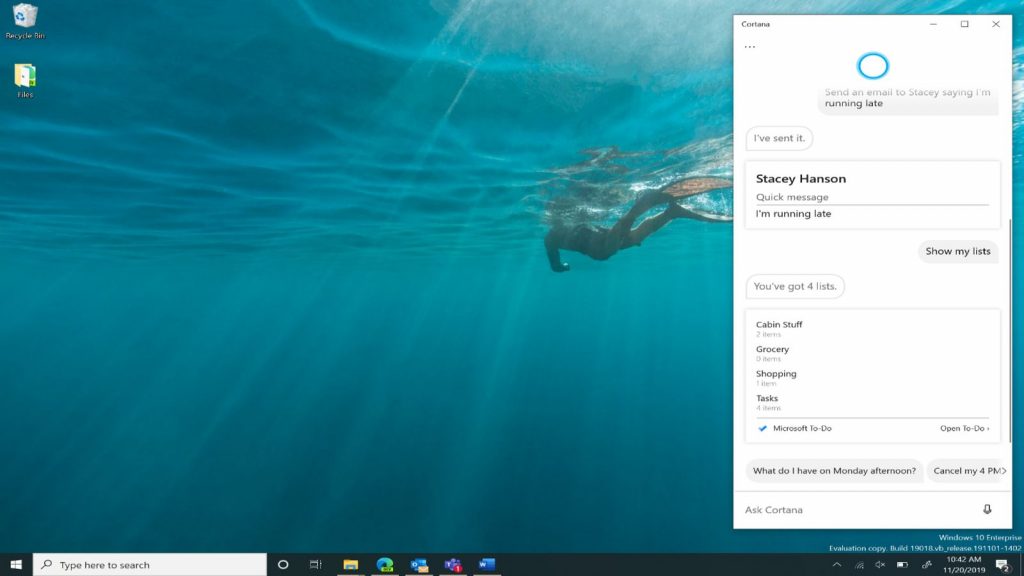Not too long ago Cortana was the character in a video game. Now, at the end of 2019, it’s a full-time office assistant only focused on keeping you productive.
Well, this is at least what we gathered from Microsoft’s brief on its upcoming Cortana updates which rolled out to Insiders this week.
No ad to show here.
“You may have heard that we’re evolving Cortana from a general digital assistant, to a personal productivity assistant that helps you in the Microsoft 365 apps you use to get things done every day,” said the company in a statement.
“As part of that evolution, we’ve made several changes that will give you a glimpse into how your assistant will help you manage tasks and time and connect with people.”
Hopefully this means fewer human transcribers and more useful tasks.
The changes to Cortana on Windows 10
Among these changes includes the ability to unleash the digital assistant from the taskbar, giving users the ability to “move or re-size Cortana like any other app”.
This comes after Microsoft split Cortana and Search into two distinct apps earlier this year.
It also has a number of new voice commands it can understand too, which Microsoft calls “Skills”. This includes an email skill — which allows you to construct or show emails — a calendar skill, and a Windows skill.
The latter lets users open apps or adjust settings, like the screen brightness, via voice commands.
Finally, some accessibility tweaks also feature. Microsoft’s separating personal and work accounts (finally).
” If you sign in with a Microsoft Account, you’ll interact with your personal information. If you sign in with a work or school account, Cortana will work with that one,” the company clarified.
Oh, and just because Cortana’s all business now doesn’t mean that the jokes have completely died. Although they’re not available on the current build, Microsoft has noted that jokes, alongside new features like Bing instant answers and timers, will return.
The news also comes after the company announced the imminent death of Cortana on iOS and Android.
Feature image: Microsoft
